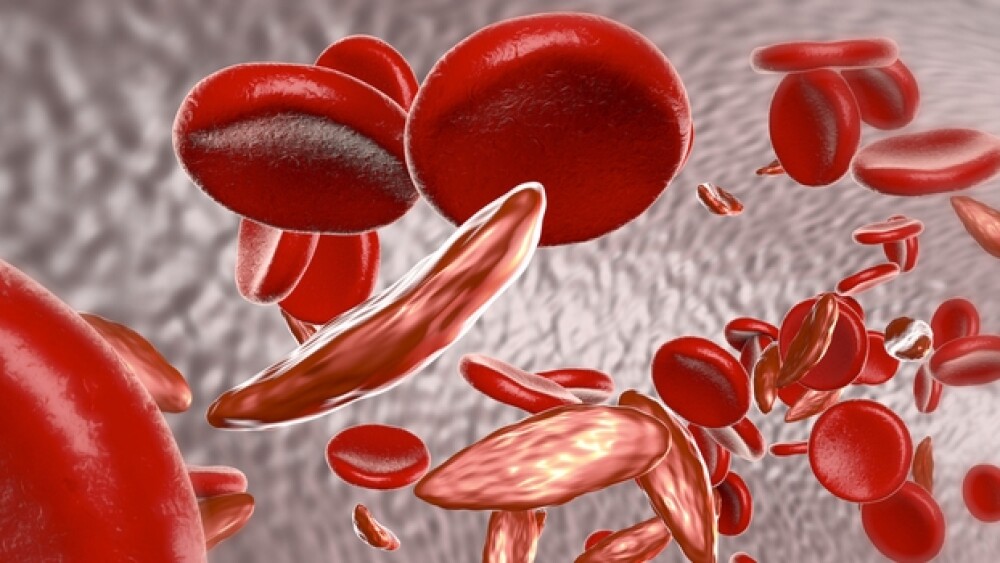The U.S. FDA approved Chiesi Global Rare Diseases’ Ferriprox for treatment of transfusional iron overload caused by sickle cell disease (SCD) or other anemias in adults and children ages three years and older. This approval expands the use of the drug for patients with SCD or other anemias.
The U.S. Food and Drug Administration (FDA) approved Chiesi Global Rare Diseases’ Ferriprox (deferiprone) for treatment of transfusional iron overload caused by sickle cell disease (SCD) or other anemias in adults and children ages three years and older. This approval expands the use of the drug for patients with SCD or other anemias in addition to patients with thalassemia without regard for previous iron chelation exposure.
Ferriprox is a synthetic iron-chelating agent that can be taken orally. It decreases iron concentrations by penetrating cell membranes and latching onto and removing toxic iron from organs and extracellular fluids. The drug is available as a 1000mg twice-daily oral tablet.
SCD affects approximately 100,000 people in the U.S. In it, the red blood cells take on a C-shaped, sickle-like formation. They do not carry oxygen as effectively and die early, resulting in a shortage of red blood cells (anemia). Because they are stickier than normal red blood cells, they also cause more blood clots in small blood vessels, which can cause pain and other problems like infection, acute chest syndrome and stroke. Iron overload results from the number of blood transfusions SCD patients require.
“People who are living with SCD face significant challenges with pain and organ damage that can greatly impact their quality of life, and most who need blood transfusions also need iron chelation therapy including those with known kidney issues who have limited treatment options,” said Giacomo Chiesi, head of Chiesi Global Rare Diseases. “We believe that delivering an iron chelation therapy that has no dosage adjustment required for patients with mild to severe renal impairment may address a significant unmet need in SCD.”
Chiesi went on to say, “We have a long history of commitment to the rare disease community and this FDA approval is a testament to the investments we continue to make in scientific research and development with patients at the center of everything we do. We would like to thank the patients and the SCD community for their participation in clinical studies because without their support this would not have been possible.”
Just last week, Chiesi and its development partner Protalix Biotherapeutics received a Complete Response Letter (CRL) from the FDA for their Biologics License Application (BLA) for pegunigalsidase alfa (PRX-102) for adults with Fabry disease.
Fabry disease is an X-linked inherited disease caused by insufficient activity of the enzyme lysosomal alpha-Galactosidase-A. This causes the progressive accumulation of abnormal deposits of globotriaosylceramide (Gb3).
Gb3 is a fatty substance that accumulates in the blood and blood vessel walls. Symptoms are pain, gastrointestinal issues, fatigue, angiokeratoma, dark spots on the skin caused by dilated capillaries, abnormal sweating, and cardiovascular, renal, and cerebrovascular events.
PRX-102 is a plant cell culture-expressed and chemically modified type of the recombinant alpha-Galactosidase-A enzyme. The submission was based on data from completed Phase I/II clinical tests, an extension study, and interim data from the Phase III BRIDGE switch-over trials, as well as safety data from other ongoing trials. It was submitted under the agency’s Accelerated Pathway program.
Giacomo Chiesi said at that time, “Based on extensive clinical data including results from the Phase III BRIDGE clinical trial of PRX-102 for the proposed treatment of Fabry disease, we continue to feel strongly that PRX-102 is an important option for the treatment of Fabry disease in adult patients, and we are continuing with our efforts to make this therapy available to patients.”





